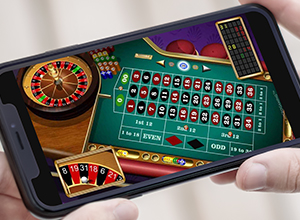 If you’ve ever been curious about one of the most iconic and thrilling casino games, you’re in the right place. Roulette is a game of chance, where a spinning wheel and a little ball hold the promise of big wins and heart-pounding excitement.
If you’ve ever been curious about one of the most iconic and thrilling casino games, you’re in the right place. Roulette is a game of chance, where a spinning wheel and a little ball hold the promise of big wins and heart-pounding excitement.
In this guide, we’ll break down everything you need to know about roulette, from the basics of how to play to the different betting options, strategies, and tips to enhance your enjoyment of the game.
Whether you’re stepping into a casino for the first time or just looking to learn more about this classic pastime, we’ve got you covered. So, let’s roll the wheel and explore the world of roulette!
A Brief History of a Classic Game
The history of roulette spans several centuries, with its origins rooted in 17th-century France. While the exact genesis remains somewhat unclear, it is widely believed to have originated during this time. The name “roulette” itself is a French word that means “little wheel,” which, naturally, describes the game’s essential feature.
Blaise Pascal, a prominent French mathematician and physicist, is often credited with inventing roulette during the 17th century. Interestingly, Pascal wasn’t trying to create a casino game; his focus was on developing a perpetual motion machine. The roulette wheel emerged as an accidental outcome of his scientific endeavors.
As we move into the 18th century, the first modern roulette wheels, closely resembling the ones used in contemporary casinos, began to appear in Parisian gambling establishments. Roulette quickly gained popularity among the French nobility and elite circles, marking its ascent as a favored pastime.
In the 19th century, roulette traveled across Europe and eventually reached the United States. In America, a modified version of roulette was introduced, featuring both a single zero (0) and a double zero (00) on the wheel, setting it apart from the European version. This distinction between European and American roulette has persisted to this day.
In the 20th century, roulette continued to evolve, with the establishment of iconic casinos in Las Vegas and around the world. The game remained a staple in the casino industry, and variations like electronic and online roulette emerged to cater to changing preferences.
As we enter the 21st century, the popularity of roulette has further increased, with online casinos offering a digital platform for players to enjoy the game from the comfort of their homes. Technological advancements have also brought innovations like live dealer roulette, which provides an immersive and interactive gaming experience over the internet.
Roulette 101: The Basics
Roulette is relatively easy to play. The game starts with you placing your bets on the roulette table. The table features a large wheel with numbered pockets and a corresponding betting layout. You have various betting options, including wagering on specific numbers, groups of numbers, colors (red or black), or even/odd numbers.
Once all bets are made, the croupier, the casino’s dealer, spins the wheel in one direction and simultaneously sends a small ball spinning in the opposite direction. The ball eventually loses momentum and drops into one of the numbered pockets.
If the pocket the ball lands in matches your bet, you win. The amount you win depends on the type of bet you placed, and this is determined by the game’s odds and your chosen strategy.
In roulette, there are different types of bets with varying levels of risk and potential rewards. For instance, betting on a single number (a “straight-up” bet) offers high potential payouts but is also riskier.
On the other hand, betting on red or black, or even/odd numbers, provides a nearly 50-50 chance of winning but pays out less. Players often use a combination of bets to balance risk and reward according to their preferences.
Some popular tactics in roulette include the Martingale strategy, where you double your bet after each loss to potentially recoup your losses when you win, and the Paroli strategy, where you increase your bet after each win to capitalize on winning streaks.
However, you should always remember that roulette is fundamentally a game of chance, and no strategy can guarantee consistent wins. Each spin is independent of the last, and the house always has a slight edge in the long run.
What Roulette Variations Exist?
 Roulette offers several popular must-play variants, each with its own set of rules and unique characteristics. The most common variations are American, European, and French roulette.
Roulette offers several popular must-play variants, each with its own set of rules and unique characteristics. The most common variations are American, European, and French roulette.
American roulette features a wheel with 38 pockets, including numbers 1 through 36, a single zero (0), and a double zero (00). The additional double zero increases the house edge, making it slightly less favorable for players.
European roulette, on the other hand, has 37 pockets, including numbers 1 through 36 and a single zero (0). The absence of the double zero results in better odds for players, making it a more player-friendly version.
French roulette is quite similar to European roulette, with the same 37 pockets and a single zero. However, it also offers the “La Partage” and “En Prison” rules that further enhance the player’s odds.
“La Partage” means that if you bet on even money outcomes (like red or black) and the ball lands on zero, you only lose half your bet. “En Prison” allows you to leave your bet “in prison” for the next spin if the ball lands on zero. If your bet wins on the next spin, you get your original wager back; otherwise, you lose it.
Other variations of roulette exist, such as Mini Roulette and Multi-Wheel Roulette, which add unique twists to the game. Mini Roulette, as the name suggests, uses a smaller wheel with fewer numbers, making it a quicker and simpler version.
Multi-Wheel Roulette, on the other hand, lets you bet on the outcomes of multiple wheels simultaneously, increasing the excitement but also the complexity.
Each roulette variation follows the same basic rules of gameplay, where you place bets, spin the wheel, and hope that the ball lands on a pocket that matches your bet.
However, the number of pockets and specific rules like “La Partage” and “En Prison” can significantly impact the odds and player experience, so it’s essential to understand the rules of the specific variation you’re playing.
Why do People Enjoy Roulette?
People enjoy playing roulette for several reasons. Above all, roulette is a game of chance, and the element of unpredictability and excitement that comes with each spin of the wheel is a significant draw. The anticipation and thrill of not knowing where the ball will land can be exhilarating.
You also have to consider the fact that the simplicity of the game’s rules makes it accessible to both beginners and experienced players, which contributes to its widespread appeal.
The social aspect of roulette also plays a role in its popularity. It’s often played in a lively casino environment where players can engage with each other and the dealer, adding a sociable and interactive element to the experience.
The variety of betting options in roulette allows players to choose the best strategy to make money that suits their risk tolerance and preferences, from high-risk, high-reward bets to safer, lower-paying options.
The visual and auditory elements of the game, including the spinning wheel and the clicking of the ball, create a sensory experience that adds to the overall enjoyment. Roulette offers a unique combination of luck and strategy, making it engaging for a wide range of players—and quite possibly, for you.
Top Roulette Strategies
 Roulette strategies are tactics that you can employ to potentially improve your chances of winning no matter your level, or manage your bets as you play the game.
Roulette strategies are tactics that you can employ to potentially improve your chances of winning no matter your level, or manage your bets as you play the game.
One common approach is the Martingale strategy, where players double their bets after each loss, aiming to recover previous losses when they eventually win. This method seems straightforward, but it requires a significant bankroll, and a prolonged losing streak can result in substantial losses.
In contrast, the Paroli strategy suggests increasing bets after each win to take advantage of winning streaks while limiting losses during losing streaks. It is seen as a lower-risk strategy, though it doesn’t assure long-term profits.
Another popular strategy is the Fibonacci system, which uses a mathematical sequence to determine bet sizes, with each bet being the sum of the previous two. These strategies can add structure and excitement to the game.
Is Roulette Controversial? A Deeper Look
While roulette is generally a straightforward and popular casino game, it has had its share of controversies and notable incidents over the years.
One well-known controversy revolves around the game’s integrity, particularly with regard to biased wheels. In the past, some roulette wheels were not perfectly balanced, leading to wheel malfunctions: certain numbers or sectors being favored and increasing the likelihood of them coming up. This issue has led to accusations of casinos manipulating the game.
To address these concerns, modern casinos invest in precision-engineered roulette wheels and conduct regular maintenance to ensure fairness.
There have also been instances of cheating in roulette, with players attempting to manipulate the outcome through various methods, such as magnetic balls, rigged wheels, or collusion with casino staff. Such incidents have resulted in legal actions and increased security measures in casinos to prevent cheating.
In recent years, controversies have also arisen concerning the use of electronic devices, such as smartphones, to predict or influence roulette outcomes. Casinos have implemented strict policies against the use of such devices.
